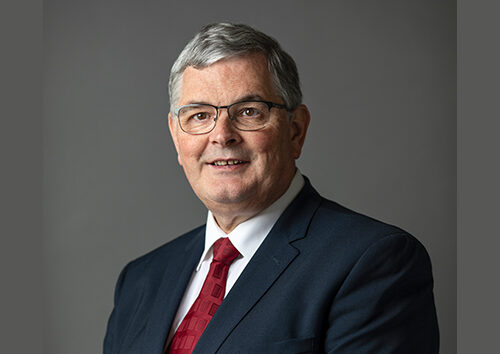11 February 2016 | Binfield, UK [Helen Pearson] It is a European problem – and Adventists are not immune to it. Just like everyone else, church members have watched the movement of tens of thousands of despairing people as they pour across Europe in search of a better life, education for their children, jobs and freedom. How do we respond?
On Tuesday evening, 9 February, the Diversity Lecture at Newbold College dealt with two significant questions, “How are Seventh-day Adventists in the UK responding to the refugee crisis in Europe?” and “What issues do the fundraising figures from ADRA-UK (the Adventist Development and Relief Agency) show about attitudes to the needs of migrants, refugees and other victims of war and disaster?”
 As Chief Executive Officer of ADRA-UK for the last ten years and the coordinator of its Annual Appeal, Bert Smit, had the information at his fingertips. He shared his knowledge, his experience, his passion and his own questions about the part played by ADRA-UK and ADRA International in responding to the humanitarian crises in the world.
As Chief Executive Officer of ADRA-UK for the last ten years and the coordinator of its Annual Appeal, Bert Smit, had the information at his fingertips. He shared his knowledge, his experience, his passion and his own questions about the part played by ADRA-UK and ADRA International in responding to the humanitarian crises in the world.
 Smit began by exploring various models in the 150-year history of Adventist attempts to love their neighbours. There have always been responses at a local level started by early Adventist women distributing food and clothing in their community. Those responses continue, funded by the Adventist Church. The Seventh-day Adventist World Service, originally set up to take advantage of government funding for large scale development projects overseas eventually became ADRA International. ADRA is a financially separate entity of the Church, with projects both international and local funded by individual and corporate donations and government grants. The agency expanded very quickly because of the reach of the Seventh-day Adventist Church.
Smit began by exploring various models in the 150-year history of Adventist attempts to love their neighbours. There have always been responses at a local level started by early Adventist women distributing food and clothing in their community. Those responses continue, funded by the Adventist Church. The Seventh-day Adventist World Service, originally set up to take advantage of government funding for large scale development projects overseas eventually became ADRA International. ADRA is a financially separate entity of the Church, with projects both international and local funded by individual and corporate donations and government grants. The agency expanded very quickly because of the reach of the Seventh-day Adventist Church.
 And so to the unprecedented current situation. “There are now 60 million international displaced people ‒ a number equal to the population of the UK”, said Smit. “And European responses to the crisis are becoming more negative. In the UK support for the migrant crisis is down from 36% to 25%.” News of alleged migrant bad behaviour has fuelled hostility. Some European countries are starting to repatriate migrants; others are seizing their assets. The EU is talking about outsourcing refugee camps.
And so to the unprecedented current situation. “There are now 60 million international displaced people ‒ a number equal to the population of the UK”, said Smit. “And European responses to the crisis are becoming more negative. In the UK support for the migrant crisis is down from 36% to 25%.” News of alleged migrant bad behaviour has fuelled hostility. Some European countries are starting to repatriate migrants; others are seizing their assets. The EU is talking about outsourcing refugee camps.
How is ADRA responding in Europe to these despairing people walking towards and through our continent? ADRA offices in Central Europe which had simply been fundraising offices, suddenly found themselves in the midst of the action, but knowing that they could offer very little. In Macedonia, Serbia and Croatia, with volunteer help from both local churches and the community, ADRA has been offering help to some of the migrants waiting to move on. But the need was overwhelming. “We are mopping up while the tap is still running”, said Smit.
Clearly there was too little funding and the migrant crisis seemed not to be tugging at purse strings in the way that disasters and emergency relief had done. In the UK there was a discrepancy between the amounts raised. The 35,000 church members in the UK had been generous for disaster and emergency relief. They had raised £262,000 for the Haiti Earthquake in 2010, £166,000 for the typhoon in the Philippines in 2013, £155,000 for the Ebola Crisis last year. But for the European Migrant Crisis only £10,000 had come in.


The lecture was recorded and is available online. [tedNEWS]
tedNEWS Staff: Victor Hulbert, director; Esti Pujic, editor
119 St Peter’s Street, St Albans, Herts, AL1 3EY, England
E-mail: [email protected]
Website: www.ted-adventist.org
tedNEWS is an information bulletin issued by the communication department of the Seventh-day Adventist Church in the Trans-European Division.
You are free to re-print any portion of the bulletin without need for special permission. However, we kindly request that you identify tedNEWS whenever you publish these materials.



